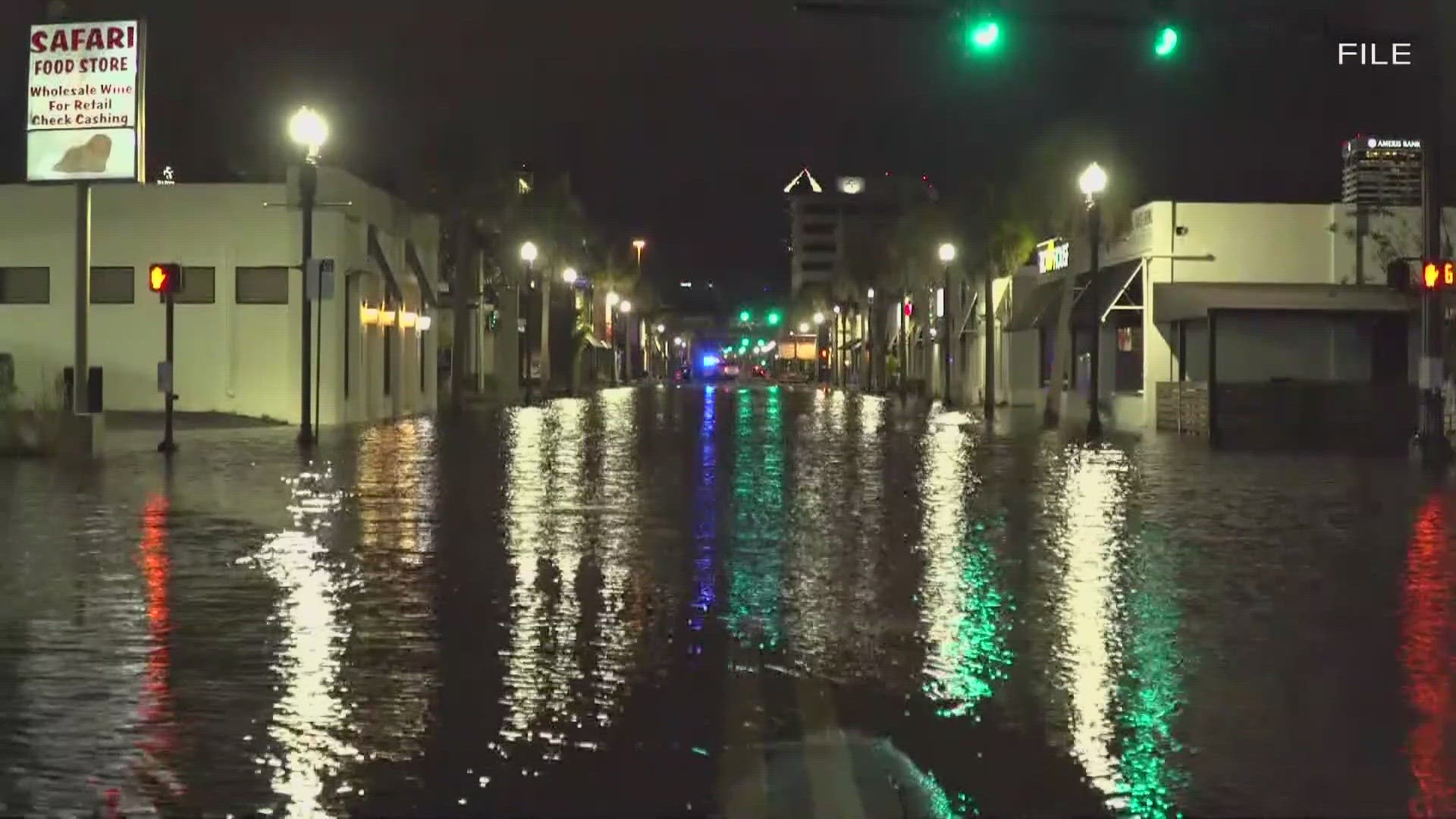JACKSONVILLE, Fla. — It's a plan 2 years in the making with goals of protecting our city and its citizens from natural disasters over the next 50 years. On Friday the city of Jacksonville unveiled its resiliency plan during an environmental symposium at UNF.
Sea Levels are rising and for a coastal city with nearly 1,500 miles of combined coastline and riverfront, storms and storm surge are a real concern. "Resilient Jacksonville" was unveiled as an action plan of adaptable changes in the short term and long term designed to strengthen the future of the city in the face of natural disasters.
"Today we have a plan that is backed by science and data, it lays out the action we must take to become a more resilient city," said Mayor Donna Deegan.
Planning for Resilient Jacksonville began before Deegan became mayor and its implementations will have an effect on the city long after she's out of office.
The realities of the report are stark by identifying neighborhoods that will be inaccessible to first responders during significant floods. Mayport experienced 4 high tide flood days 2 years ago and will see that frequency increase to between 40 and 60 days by 2050.
Anne Coglianese is the city's Chief Resilience Officer and said there are different timeframes for actions ranging from long term goals the city hopes to implement by 2050 to immediate goals.
"We're already seeing improved evacuation routes and emergency plans for extreme heat," said Coglianese.
Part of the plan shows areas of Jacksonville that are susceptible to dangerous levels of heat in the summer, but an even larger portion of the plan looks at historic vulnerabilities and estimated impacts from future storms and a sea level rise.
"We know to get ahead of these changes we really have to start today and think about what is at risk in our city, how we need to grow differently, how we need to design projects differently and support residents differently," said Coglianese.
According to the city, during the course of this plan Jacksonville is expected to gain an additional 600,000 residents.
"The city's looking at our land development regulations and if they're sufficient for the level of growth we're anticipating," said Coglianese.
Resilient Jacksonville also calls for the protection of the city's 400 parks, land acquisition for conservation, fortification of critical city systems and possible buyouts of homes in dangerous flood zones.
"My hope for this is that no matter where you live in Jacksonville you're able to see the city effectively responding to new threats," said Coglianese, "whether that's increased rainfall that's bringing flooding, hotter summers, acute heatwaves and that there are solutions in your neighborhood that can help you withstand these effects."
This plan is one of the most comprehensive examinations of climate impacts that any US city has undertaken to date. Click here to read the entire plan.

